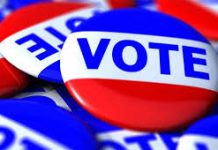7th Circuit: Civil Rights Act Of 1964 Provides Protection For LGBT Worker At Ivy Tech
Marilyn Odendahl for www.theindianalawyer.com
The employment discrimination complaint that began as a pro se filing by an Indiana math teacher has led the 7th Circuit Court of Appeals to become the first federal appellate court to find the Civil Rights Act of 1964 provides protection for LGBT workers.
Issued about four-and-a-half months after oral arguments before the entire court, the majority opinion in Kimberly Hively v. Ivy Tech Community College, 15-1720, found that discrimination on the basis of sexual orientation is a form of sex discrimination which is prohibited under Title VII of the Civil Rights Act.
Lambda Legal Defense & Education Fund, which argued Hively’s position before the 7th Circuit, heralded the ruling as having an impact beyond Indiana.
“This decision is a gamechanger for lesbian and gay employees facing discrimination in the workplace and sends a clear message to employers; it is against the law to discriminate on the basis of sexual orientation,†Greg Nevins, employment fairness program director for Lambda Legal, said in a statement.
However, three judges in the 7th Circuit dissented, arguing the court overstepped the judiciary’s role by interpreting the statute more broadly than Congress intended. The counter opinion asserts that when Title VII was adopted, the ban on discriminating because of an employee’s sex pertained solely to being either male or female. In 1964 and even today, the meaning of the word “sex†does not include “sexual orientation.â€
“If Kimberly Hively was denied a job because of her sexual orientation, she was treated unjustly,†Judge Diane Sykes wrote in the dissent. “But Title VII does not provide a remedy for this kind of discrimination. The argument that it should must be addressed by Congress.â€
The case has been remanded to the U.S. District Court for the Northern District of Indiana. In a statement, Ivy Tech said it would not appeal the decision to the Supreme Court of the United States.
“Ivy Tech Community College rejects discrimination of all types, sexual orientation discrimination is specifically barred by our policies,†the institution said. “Ivy Tech respects and appreciates the opinions rendered by the judges of the Seventh Circuit Court of Appeals and does not intend to seek Supreme Court review. The College denies that it discriminated against the plaintiff on the basis of her sex or sexual orientation and will defend the plaintiff’s claims on the merits in the trial court.â€
Hively was a part-time adjunct professor at Ivy Tech in South Bend for 14 years. She claims she was denied full-time positions and eventually had her employment contract cancelled because she is a lesbian.
The U.S. District Court for the Northern District of Indiana dismissed Hively’s pro se lawsuit because Title VII protections do not extend to sexual orientation. Lambda Legal Defense & Education Fund stepped in to represent Hively and appealed the ruling to the 7th Circuit.
In July 2016, the three-judge panel upheld precedent and affirmed the district court. But the appellate ruling contained an extensive review of what the majority saw as growing confusion within the judicial branch as to whether sexual orientation discrimination could be viewed as a violation of the Civil Rights Act.
Picking up on the panel’s observation that separating gender non-conformity from sexual orientation is difficult, the majority maintained the U.S. Supreme Court has been moving the goalposts as to what is included in sex discrimination.
When Congress enacted civil rights, it may not have envisioned the statute would protect against sexual harassment. Still, the Supreme Court held Title VII covers this kind of harassment in a string of decisions beginning with Meritor Sav. Bank, FSB v. Vinson, 477 U.S. 57 (1986). And, the majority noted, three years later in Price Waterhouse v. Hopkins, 490 U.S. 228 (1989), the nine justices reached the decision that Title VII prohibits discrimination based on a person’s failure to conform to a certain set of gender stereotypes.
The majority found that Hively did not conform to the female stereotypes.
“Any discomfort, disapproval, or job decision based on the fact that the complainant – woman or man – dresses differently, speaks differently, or dates or marries a same-sex partner, is a reaction purely and simply based on sex,†Chief Judge Diane Wood wrote for the court. “That means that it falls within Title VII’s prohibition against sex discrimination, if it affects employment in one of the specified ways.â€








So, actually what the court has opined is that there are males, females, homosexuals, and lesbians, which in themselves are different sexes. What a perverse biological reasoning that flies in the face of all scientific facts about human sexes. If she was denied the job because of her sexuality (which according to Ivy Tech isn’t true, but, rather, it was because of low performance), she should have a reasonable case with a clear cause. The court has left out any sane or believable statutory reason for it’s opinion thus accomplishing nothing of real meaning. Once again, activism from the bench.
Precisely why Thomas Jefferson opposed the Constitution ..he declared the Constitution to support Despotism ..why? for this very reason that we have individuals that are not held accountable ..in Jefferson’s writings to various associates stating that two parts of our Republic answer to the electorate and on part nullifies both .. For some apparent reason the founders believed that Federal judges would be somehow “Divine” without political interference and though their divinity would come forward from Mt. Zion the Truth ..just shows that Marijuana was in use in those days ..
While I agree with your basic premise, Jefferson was a believer in personal integrity and never dreamed the citizenry would vote their liberties away for personal gain or “loot” as he described it. What has happened is that we have allowed SCOTUS to tie everything to the Constitution through the intentional misguidance of politicians and education establishments. The greedy populace has transformed our republic into a quasi-democracy that the framers never meant to be. To call the present day Democrat Party the party of Jefferson is an ongoing lie perpetuated by the media and corrupt politicians. Jefferson would never want himself or his name tied to the party whose core belief is big government is best.
Comments are closed.